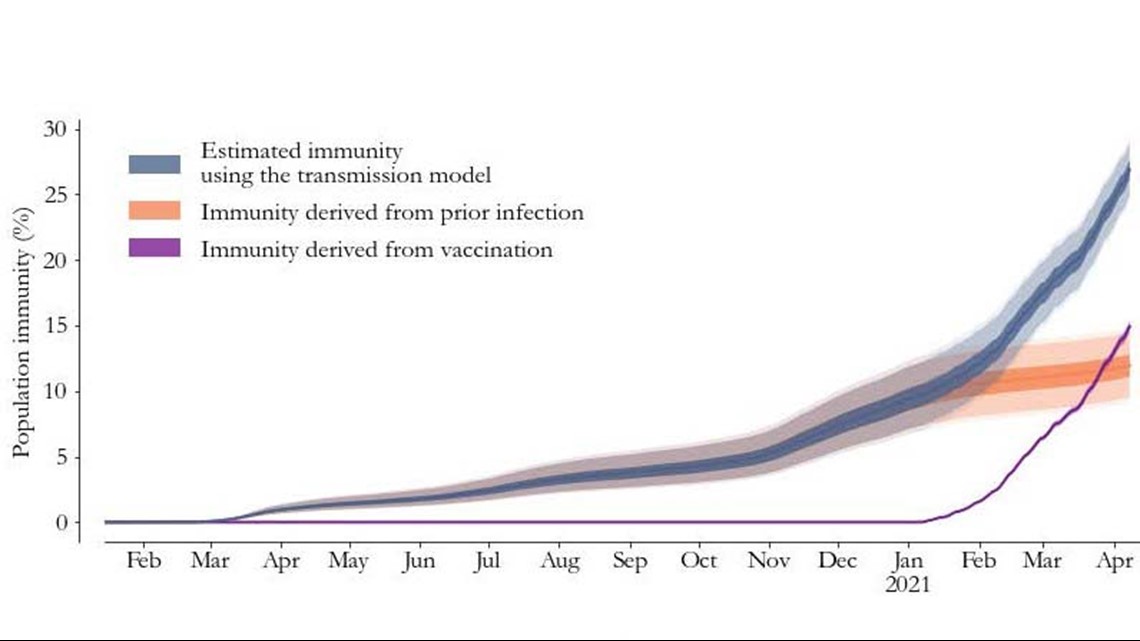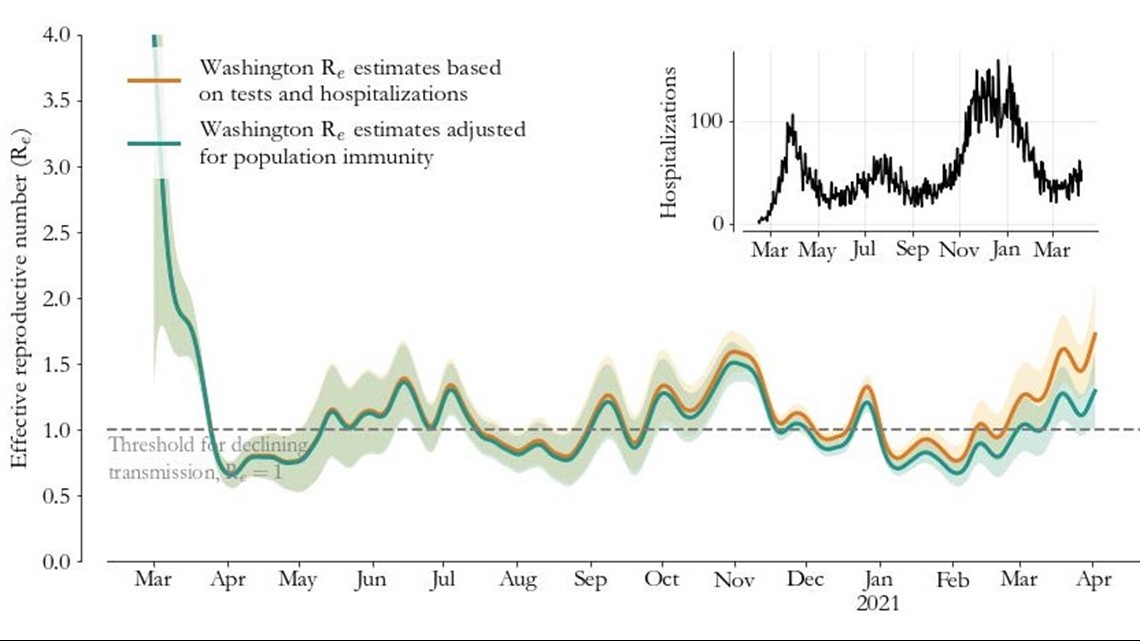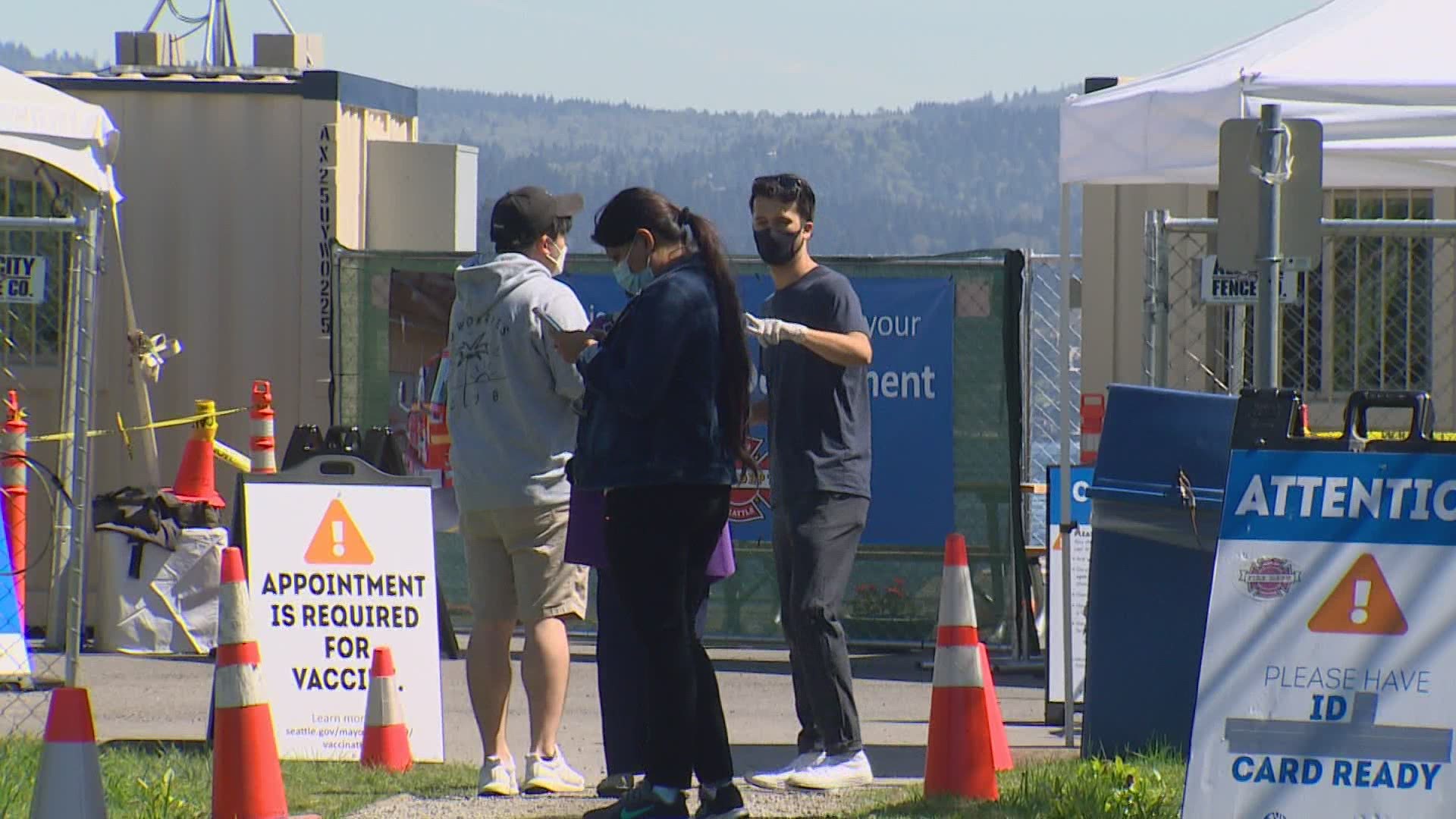SEATTLE — Immunity from vaccination and prior infection is helping control the spread of COVID-19, but it isn’t enough to counteract behavior choices, according to the Washington State Department of Health (DOH).
“Vaccination is working, but immunity isn’t high enough yet to combat increasing disease levels,” Acting State Health Officer Scott Lindquist said in a statement. “All of us, including people who are fully vaccinated, need to keep taking steps to slow the spread while we vaccinate more people.”
In a situation report released Thursday, officials said at the beginning of April about 26.8% of Washington’s population was immune from COVID-19 – about 15% of which is from vaccination. The percent of people immune by vaccination surpassed those immune by prior infection (about 11%) for the first time at the end of March.


However, even with increased vaccination, the reproductive number of COVID-19 remains too high to reduce case and hospital admissions rates, according to DOH. The reproductive number estimates how many new people one COVID-19 patient will infect.
On April 2, Washington’s reproductive number that only took behavior into account was 1.72. When adjusting for immunity, it dropped slightly to 1.29. But health officials say the reproductive number needs to be below one to make a dent in the case rate.


With all adults age 16 and older eligible for the COVID-19 vaccine, officials are racing to administer doses as quickly as possible. On average, Washington is giving out nearly 59,000 shots per day with a goal of reaching 90,000 people per day over the next six to eight weeks.
As of April 19, about 26% of people in Washington were fully vaccinated, according to DOH data.
Until more people get fully vaccinated, people are still urged to keep up safety precautions, like mask-wearing in public and gathering outside rather than inside.

